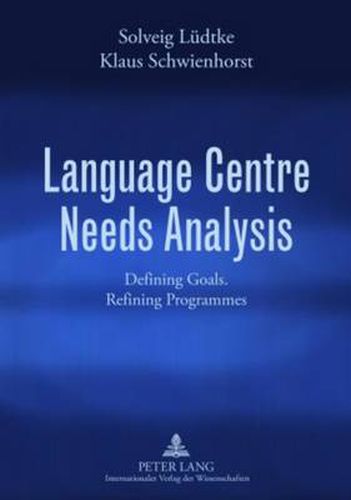Readings Newsletter
Become a Readings Member to make your shopping experience even easier.
Sign in or sign up for free!
You’re not far away from qualifying for FREE standard shipping within Australia
You’ve qualified for FREE standard shipping within Australia
The cart is loading…






What services should a modern university language centre offer its clients: students, departments, and faculties? How can language centres find out more about the language needs of the different actors at University level? The book pursues a double purpose: first, it offers a coherent theoretical framework for conducting a multiperspective, mixed-mode foreign language needs analysis in a university context. Its second purpose is to show in very detailed analysis what the practical results and consequences of such an analysis can be. After a critical view of data collection methods in foreign language needs analysis, the authors describe the framework of the Leibniz Universitat Hannover, a German university dedicated to the process of internationalisation. The book examines and evaluates in detail the results of a foreign language needs analysis conducted among approximately 18,000 students and 1,800 staff members at that university. Finally, the book demonstrates how the results of such an analysis inform a re-evaluation of language course programmes and language services within the university context.
$9.00 standard shipping within Australia
FREE standard shipping within Australia for orders over $100.00
Express & International shipping calculated at checkout
What services should a modern university language centre offer its clients: students, departments, and faculties? How can language centres find out more about the language needs of the different actors at University level? The book pursues a double purpose: first, it offers a coherent theoretical framework for conducting a multiperspective, mixed-mode foreign language needs analysis in a university context. Its second purpose is to show in very detailed analysis what the practical results and consequences of such an analysis can be. After a critical view of data collection methods in foreign language needs analysis, the authors describe the framework of the Leibniz Universitat Hannover, a German university dedicated to the process of internationalisation. The book examines and evaluates in detail the results of a foreign language needs analysis conducted among approximately 18,000 students and 1,800 staff members at that university. Finally, the book demonstrates how the results of such an analysis inform a re-evaluation of language course programmes and language services within the university context.